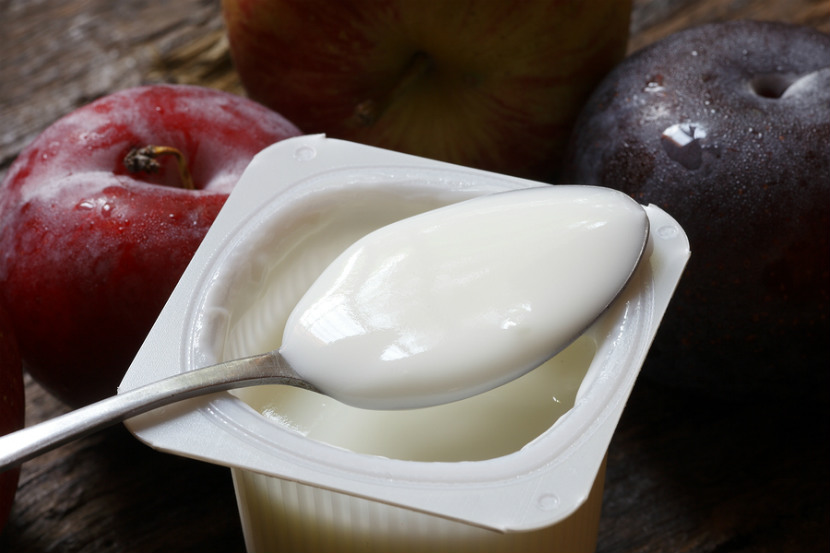
While shopping at the grocery store, you may have seen foods like milk, cheese and yogurt with probiotics. Many health benefits about probiotics have been advertised, but it is often hard to know what is true. Read on to learn more about probiotics and to get reliable information on the health benefits they have to offer.
What are probiotics?
Probiotics are healthy or good bacteria that when eaten in right amount have health benefits. Once in the colon, the bacteria multiply and help to keep a balance between the good and bad bacteria that live there. Probiotics are added to certain foods.
What’s the difference between prebiotics and probiotics?
Prebiotics are non-digestible carbohydrates that act as “food” for probiotics. Eating prebiotics will help the probiotics multiply and remain in your digestive system. Examples of foods with prebiotics are artichokes, bananas, and onions.
What are the health benefits of probiotics?
Research shows that probiotics may help:
Some research shows that probiotics may help with lactose intolerance, but more research is needed. Keep in mind that the positive effects of probiotics depend on the type and quantity eaten and will vary from person to person.
Do probiotics help with constipation?
Currently, not enough research has been done to say that probiotics help with constipation.
What foods have probiotics?
Probiotics are mostly added to foods like:
The most common probiotic bacteria added to foods are Lactobacillus and Bifidobacterium. Look for these probiotics in the ingredient list. Other foods like juice, cereal, ice cream, gum, candy and chocolate may also have probiotics but not all of these products are sold in Canada.
Which probiotics should I eat?
The types of probiotics that have been shown to be effective are Lactobacillus and Bifidobacterium. Look at the ingredient list on food packages for these probiotics.
How much probiotics should I have?
It is not yet clear how much probiotics will give you health benefits. However, it is suggested that regular, long-term use is needed to keep healthy bacteria in your digestive system. Keep in mind that the positive effects of probiotics vary from person to person. Individuals who do not consume foods with probiotics can still have a healthy digestive system by following a healthy diet.
Are probiotics safe?
Eating foods with probiotics is thought to be safe for most people including pregnant women. If you have a condition or disease or would like to give probiotics to an infant, speak to your doctor or dietitian first.
Probiotic bacteria are often grown using milk protein. Individuals with a milk allergy should avoid foods with probiotics since they may contain milk protein.
Are probiotics regulated in Canada?
Foods with added probiotics are not regulated in Canada. That means that there are no rules for how much probiotics there should be in a food or how to label probiotics on food packaging.
Should I eat foods with probiotics?
It’s up to you. Foods like yogurt, milk and cheese with probiotics are safe for most people to eat and fit into a healthy diet. They also have calcium and protein which are important for health. If you do not want to eat foods with probiotics, it is still important to have calcium-rich foods in your diet. If you do not consume foods with probiotics, you can still have a healthy digestive system by following a healthy diet.
Should I take probiotic supplements?
No. Probiotic supplements are not necessary to be healthy. If you are thinking of taking a probiotic supplement, talk to your doctor or dietitian. Your doctor or dietitian can help you choose the product and dose that is right for you. This is still not a guarantee that the product will be effective. Probiotic supplements are regulated under the Natural Health Products Regulations in Canada. This means that probiotic supplements must meet certain standards to be sold in Canada.
Bottom line
Probiotics are healthy bacteria that may have health benefits when eaten in the right quantities. Foods such as milk, yogurt and cheese may contain added probiotics and are considered safe to eat for most people. Probiotics may help with diarrhea from antibiotics and may also help ease symptoms of IBS and IBD. More research is needed to fully understand the health benefits of probiotics and the quantities and types that are most effective in foods and supplements. If you do not eat foods with probiotics, you can still have a healthy digestive system by eating a healthy diet.
Last Update – September 18, 2018